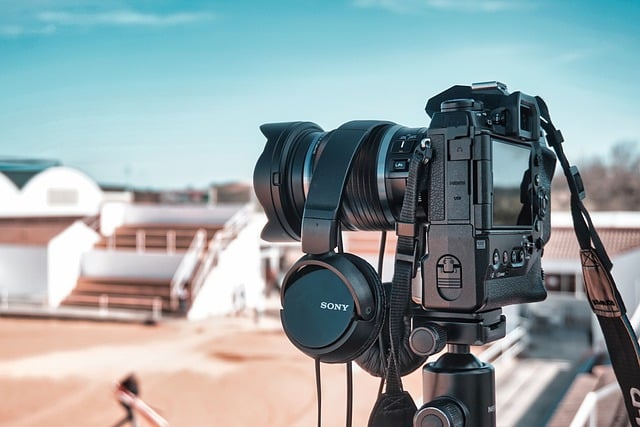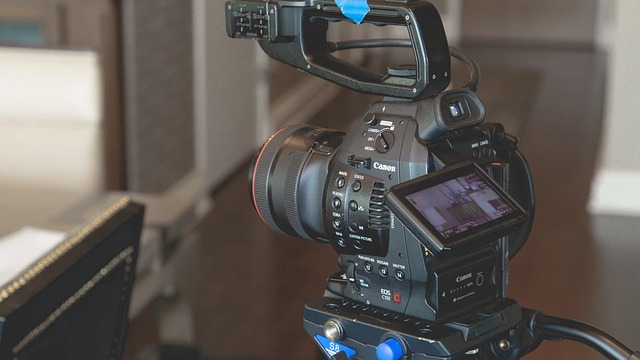How to Convert DivX files for optimal viewing experiences across diverse devices: DivX, a versatile video format, offers high-quality compression and playback options. Converting DivX to common formats like MP4 or AVI using software ensures compatibility and preserves quality. Using varied file formats provides enhanced compatibility, improved user experiences through different codecs, resolutions, and frame rates. Tools like VLC Media Player, HandBrake, and Format Factory simplify the conversion process, catering to various technical levels. Best practices for quality retention include using reliable tools, setting high-quality settings, testing converted files, and organizing metadata during conversion.
Discover the power of flexible file formats with DivX, enabling diverse playback options across various devices. This article explores how DivX’s versatility enhances multimedia experiences. We’ll delve into the benefits of using multiple file formats, guide you through popular playback device requirements, and provide essential tools for conversion. Learn best practices to maintain quality during conversion, empowering you to master How to Convert DivX seamlessly.
Understanding DivX and Its Flexibility

DivX is a versatile video file format known for its ability to offer high-quality video compression while maintaining diverse playback options. This makes it a popular choice among users looking to share and play back videos on various devices and platforms. Understanding how DivX works is crucial when considering how to convert DivX files for optimal viewing experiences.
Converting DivX files is straightforward thanks to the format’s flexibility. Users can easily transcode DivX into other common formats like MP4 or AVI using readily available software. These converted files retain the original video quality while ensuring compatibility with a broader range of devices and media players, making it simple to share videos online or watch them on your preferred device.
Benefits of Using Diverse File Formats

Using diverse file formats offers several benefits, especially for multimedia content creators and consumers. One of the key advantages is enhanced compatibility, ensuring your files can be played back smoothly across various devices and platforms. This flexibility is particularly valuable when targeting a wide audience with different playback systems.
Additionally, diverse file formats enable improved customization options, allowing users to choose from a range of codecs, resolutions, and frame rates. For example, converting DivX format allows for efficient compression while maintaining high-quality video, making it ideal for streaming or optimizing storage space. This versatility in file conversion facilitates a better user experience, catering to different preferences and requirements.
Popular Playback Devices and Their Requirements

In today’s digital landscape, diverse playback devices have become integral to how we consume media. From smartphones and tablets to smart TVs and gaming consoles, each device has its unique requirements when it comes to video formats and codecs. Understanding these needs is crucial for ensuring seamless playback experiences. Popular devices, such as modern smartphones, often support a wide range of formats, including MP4 and MKV, with hardware acceleration for smooth decoding. High-end smart TVs typically handle various codecs like H.264 and H.265 (HEVC), while gaming consoles stick to more optimized formats like MPEG-4 ASP and H.265.
Converting videos to cater to these diverse devices is made easier with tools that support popular codec options, such as DivX. How to Convert DivX files involves selecting the appropriate device profile or output format during encoding. For instance, targeting a smartphone might require an MP4 container with AAC audio, while a smart TV could benefit from MKV with Dolby Digital audio for enhanced sound quality. By adhering to these device-specific requirements, users can ensure their media content is accessible and enjoyable across various playback platforms.
Conversion Tools and Software Options

Converting files to DivX, or any other format, has never been easier thanks to a plethora of conversion tools and software options available today. These utilities play a crucial role in ensuring compatibility across various devices and platforms, especially when it comes to video playback. Whether you’re looking to convert old media collections for nostalgic purposes or want to support modern devices, the right tool can make all the difference.
DivX is known for its high-quality compression, offering an excellent balance between file size and visual fidelity. To How to Convert DivX files, users typically employ dedicated video converters that support DivX as both an input and output format. Many free and premium options exist, each with unique features like batch conversion, advanced editing capabilities, and customizable settings. Some popular choices include VLC Media Player, HandBrake, and Format Factory, which simplify the process for folks of all tech proficiency levels.
Best Practices for Maintaining Quality During Conversion

When converting files to DivX or any other format, adhering to best practices ensures optimal quality retention. Start by selecting a reliable conversion tool designed to handle video encoding efficiently. High-quality settings are recommended, allowing for more control over parameters like bit rate, resolution, and frame rate. Adjusting these settings according to your content’s specific needs can significantly impact the final output.
Regularly testing the converted files is crucial to verify their integrity. Compare the original and converted versions side by side to identify any visible artifacts or loss in quality. Additionally, ensure proper file organization during conversion to maintain metadata and avoid potential issues with playback compatibility across devices.
DivX’s flexibility in file formats is a game-changer for multimedia enthusiasts. By understanding its capabilities and leveraging the right conversion tools, users can enjoy their favorite content across various devices and platforms. Whether for personal or sharing purposes, learning how to convert DivX files efficiently ensures an optimal viewing experience without compromising quality. With the right knowledge and tools at hand, anyone can navigate this process seamlessly, unlocking a diverse range of playback options.
